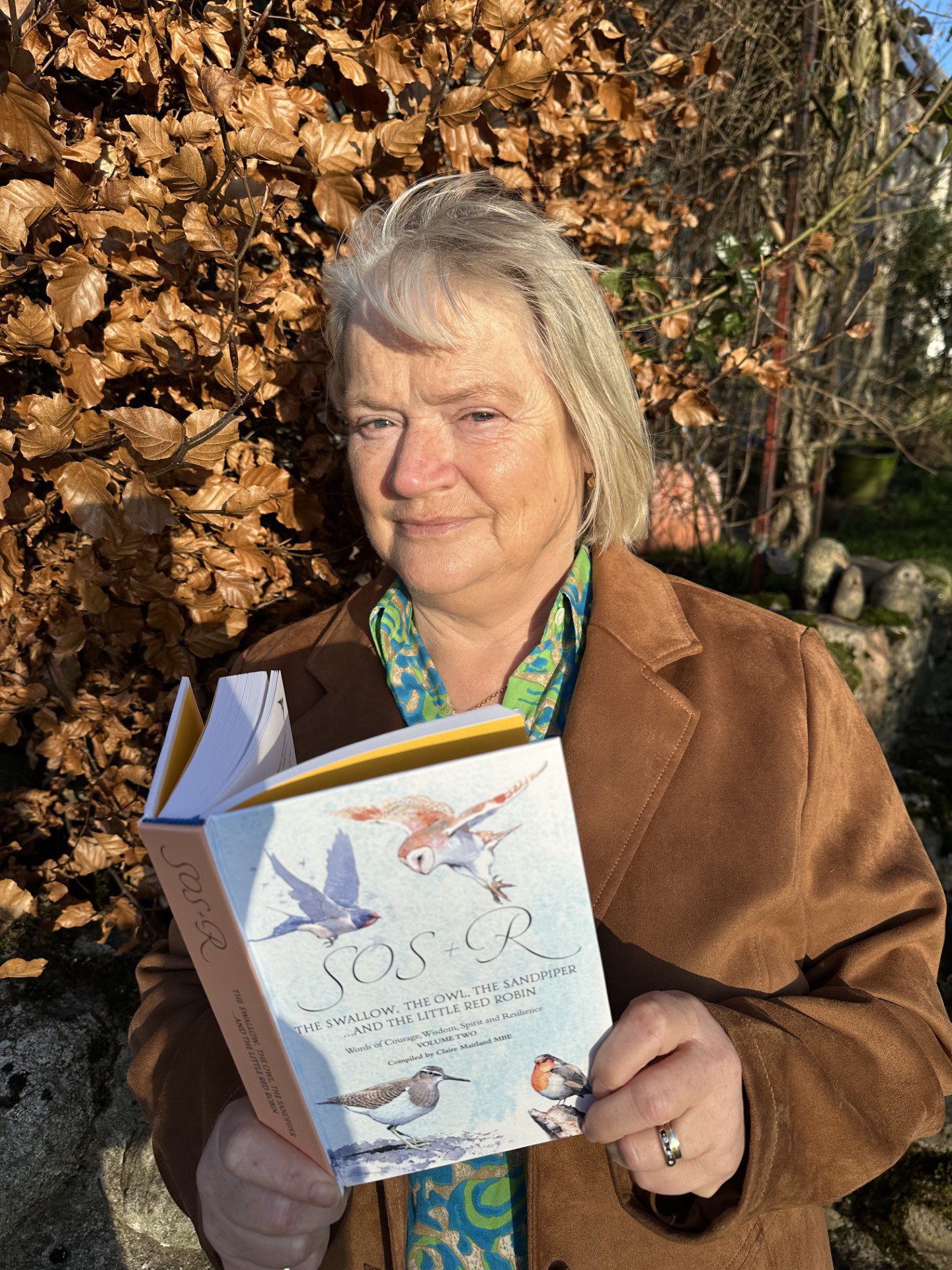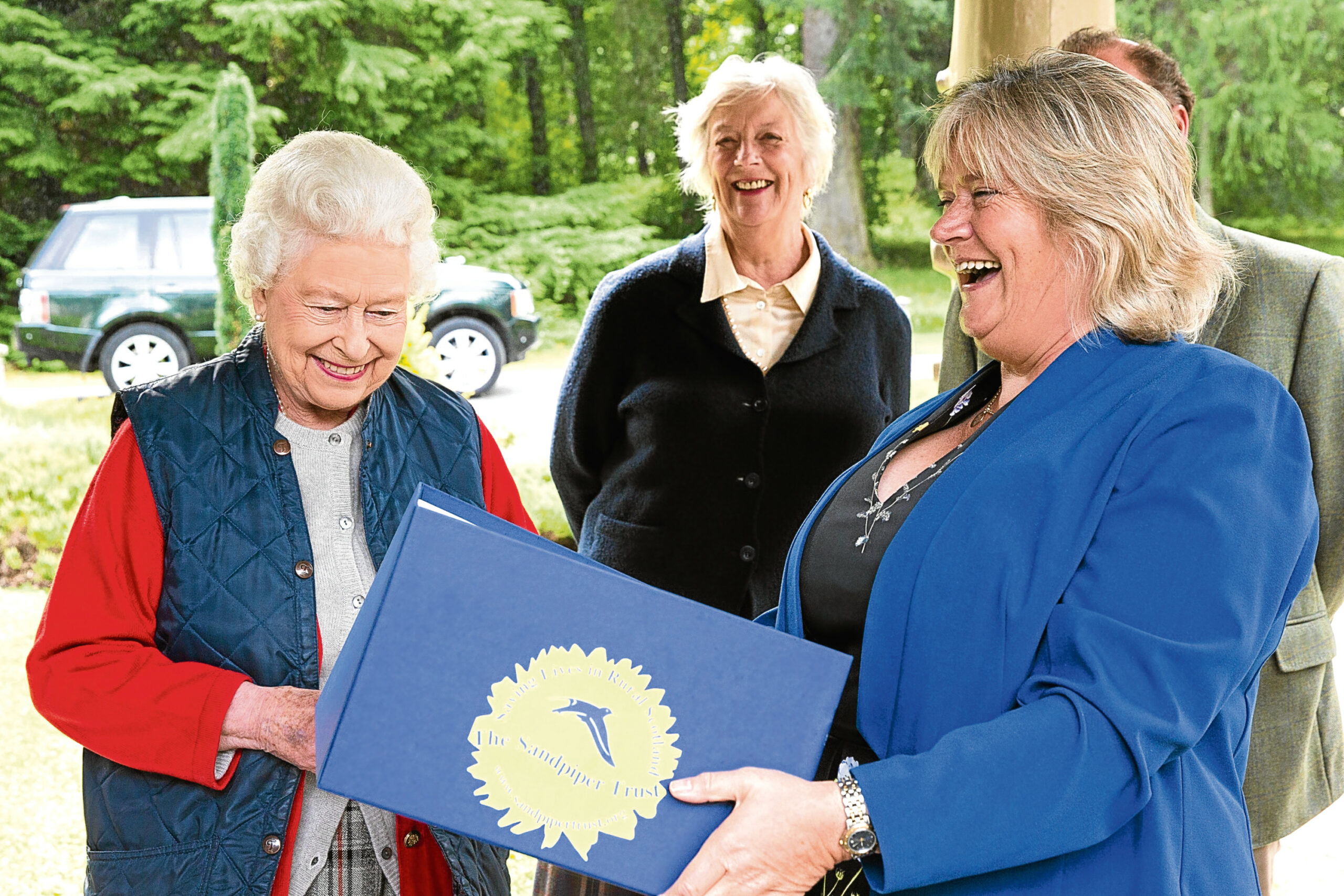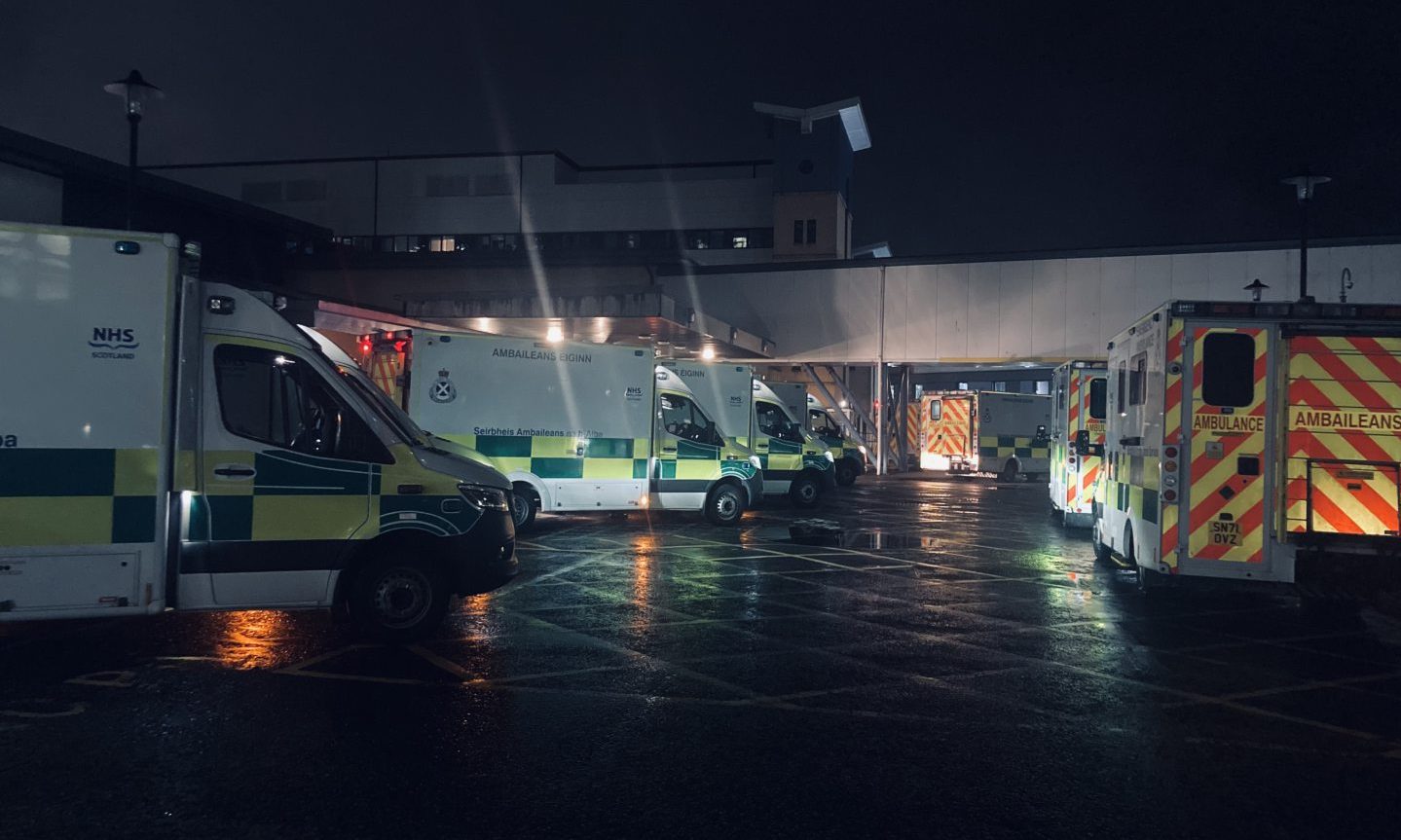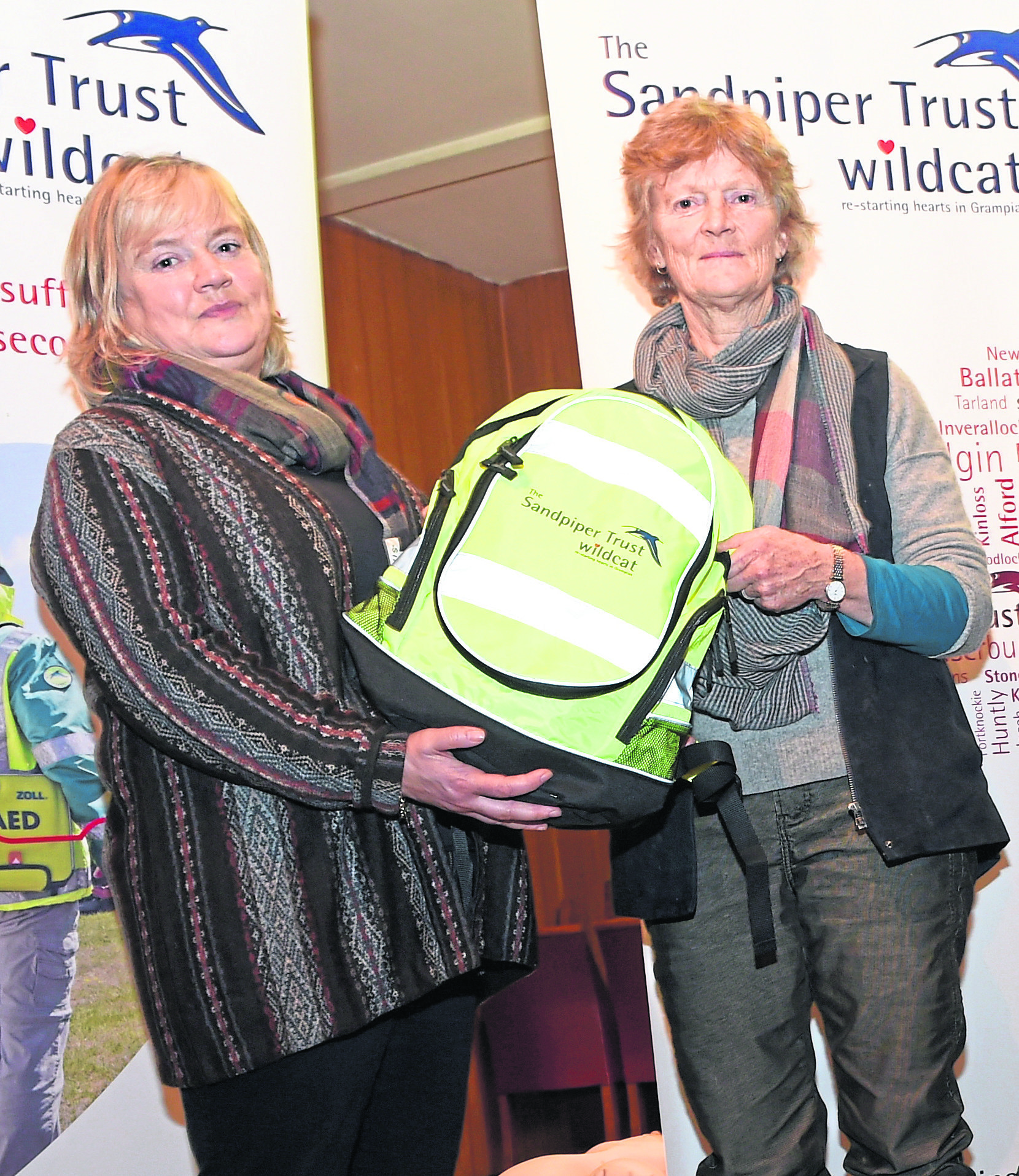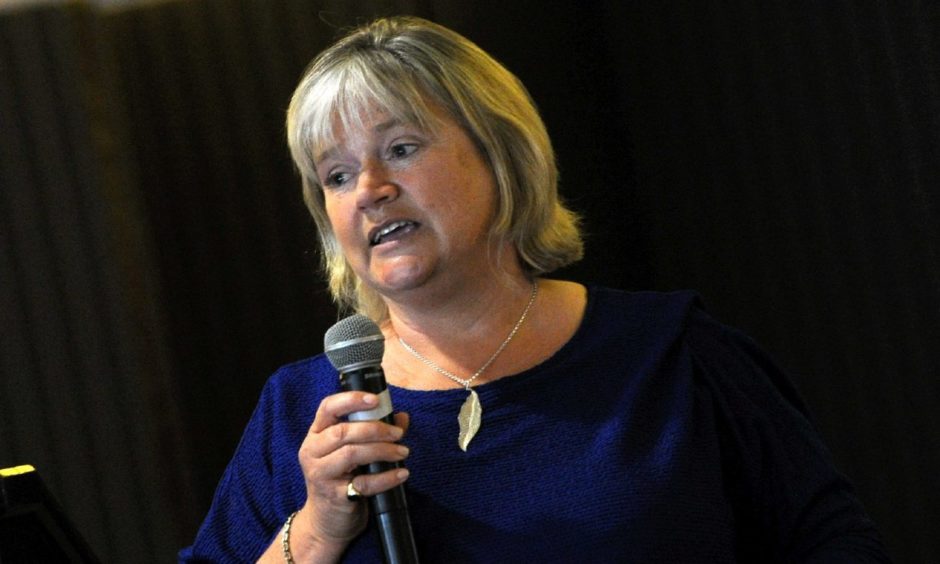
There has never been a time when Claire Maitland hasn’t been dedicated to helping others and making the world a better place.
As a youngster, growing up on a farm in Fife, she recalls spending hours sitting under a yew bush trying to encourage robins and chaffinches to feed out of her hands – and that same spirit of benevolence has been evident throughout her adult life.
She has been a vet nurse at the Blue Cross Animal Hospital in London for eight years; a member of the Grampian Local Health Council; a trustee for Friends of Roxburghe; a volunteer counsellor for Childline; and, perhaps most significantly, a co-founder and ever-present part of the Sandpiper Trust, which provides emergency medical equipment to doctors, nurses and paramedics working in remote and rural Scotland.
She has endured family tragedies
The latter organisation was established after the death of her 14-year-old nephew, Sandy Dickson, who drowned whilst on holiday in Canada with his grandparents in 2001. It’s not the only time that Claire has had to deal with tragedy in her life.
Her husband, Robin, died in 2019, following a five-year battle with a mystery illness, which remains undiagnosed to this day. He went into hospital for treatment on a benign tumour and was told, prior to surgery, he would be “driving again” two weeks later. In reality, it was the start of no less than 862 nights in different wards.
She has recorded the details of this in a new book The Swallow, The Owl, The Sandpiper…and The Little Red Robin, which features forewords from such people as the Rev Neil Gardner, the domestic chaplain to King Charles in Scotland, international rugby legend Gavin Hastings and pop and rock superstar Annie Lennox.
Yet Claire doesn’t shrink from describing the gamut of emotions with which she had to grapple even after her husband was finally discharged and welcomed home to Crathes by his family – the couple have four children, Harry, Cara, Anna and Jack – and the “wonderful” team of carers who looked after him round the clock.
The hope literally melted away
She said: “At the beginning, I had hope in my heart that Robin’s condition would improve, that he would regain strength to move, but as time passed, so did my hope as, quite literally, it melted away.
“To this day, I flinch every time I hear the word ‘HOPE’. To keep hope in one’s heart can so often lead to feelings of disappointment and, believe me, there were many of these.
“But I did keep faith in my heart throughout. We were surrounded by so much kindness, both from strangers and from the nursing staff in the hospitals.”
Claire’s response was typical of this redoubtable individual. Of course, she grieved, yet she was also relieved her husband had been spared the arrival of a global pandemic.
In the midst of lockdown, she and her Sandpiper colleagues worked tirelessly to continue their mission and with good reason. Because, while Covid provided myriad problems for those living in towns and cities, the situation was even more critical for those dwelling in rural areas such as Aberdeenshire and the Highlands and Islands.
But, from her perspective, the increasing strain on the NHS can’t be blamed on what happened in 2020, far from. The problems should have been obvious long before.
There were cracks appearing
Claire said: “In 1997, I joined the Grampian Local Health Council and, from that day onwards, I have represented public and patient groups with health-related issues.
“To sit at the bedside of those who were scared and lonely have been the most humbling experiences of my life. I also listened to the experiences of those who worked in the NHS and learned of the stresses and strains that they were working under.
“It is evident to me that there were cracks appearing in the walls of the NHS even back then. I remember a doctor telling me that if only management could sort out the small problems that were occurring, the system would all work better together.
“Sadly, as we see today, those small unsolved problems grew and we are where we are within our NHS today. The cracks were already visible long before Covid.”
Claire talks about these matters with a stoical calmness. The world keeps spinning and somehow, whatever might happen, we have to learn to spin with it as best we can.
Yet, as you might expect, it was a different matter when Sandy died in such awful circumstances; a teenager who should have had his whole life in front of him. Gone.
Saving lives was all that mattered
She told me: “The pain and suffering which rippled through our family was unbearable. From our collective grief, I began to ask questions about emergency care in rural Scotland and learned that there was a lack of trained and equipped pre-hospital care doctors in rural communities.
“Together with Sandy’s parents, Penny (my sister) and Aly Dickson, we made the brave decision to set up the Sandpiper Trust in Sandy’s memory. Penny and I knew that if we could save just one life in rural Scotland, then it would be worth our effort. We never dreamed that Sandpiper would help to save as many lives as it has done.”
Major challenges remain. Indeed, if anything, the need for organisations such as Sandpiper has never been more pressing, with the NHS stretched to near-breaking point and a situation where the service is in danger of running out of ambulances.
It was only last month that the Press & Journal highlighted a lengthy queue of emergency vehicles at Aberdeen Royal Infirmary for a variety of reasons, not least the dearth of hospital beds for patients requiring admission to hospital.
This issue has to be addressed
Claire said: “With the current problems facing the Scottish Ambulance Service and Emergency Department, it is of paramount importance to Sandpiper that rural Scotland is covered by pre-hospital care.
“As it stands, if an ambulance is called to an incident in a rural community, the ambulance will not return to base until the queues forming outside Emergency Departments have cleared and their patient has been delivered to the appropriate facility. This results in many rural areas not being covered by the ambulance service.”
Despite everything, she still accentuates the positives and pays rich tribute to the litany of volunteers who are helping so many organisations across Scotland.
And, of course, while Robin is no longer with her, he’s always in her heart.
She said: “I find comfort in my home, our home which we shared for 30 years, surrounded by my beloved four-legged friends.
The children are the bedrock
“I watch the seasons as they come and go, I listen to the birds who give me enormous pleasure, but most of all, I watch my children, Robin’s children.
“Through them, I live with him and I see him in each and every one of them. The way they walk, the way they talk. They share his humour, his interests and his compassion.”
All of which are qualities which Claire Maitland has nurtured in abundance.
Claire’s new book is avaialble from The Sandpiper Trust at sandpipertrust.org
Five questions for Claire
- What book are you reading? Away with the Penguins by Hazel Prior – a delightful book. If, aged 85, I have half the wit, determination and stubbornness of Veronica McCreedy, I shall die happy.
- Who’s your hero/heroine? It’s hard to narrow it down to one. However, I admire those who work in pre-hospital care and the Scottish Ambulance Service, who care for others, continuously going above and beyond to save lives in the most difficult of conditions.
- Do you speak any foreign languages? I used to be bilingual in English/French, but my French has diminished over the years. When I do crosswords, the answers often spring to mind in French instead of English!
- What’s your favourite band/music? Travis.
- What’s your most treasured possession? My most treasured possession is my family, their partners, and my two gorgeous grandsons who give me much needed hugs. My four dogs are my constant, faithful companions, and my precious memories of the life Robin and I shared together.
